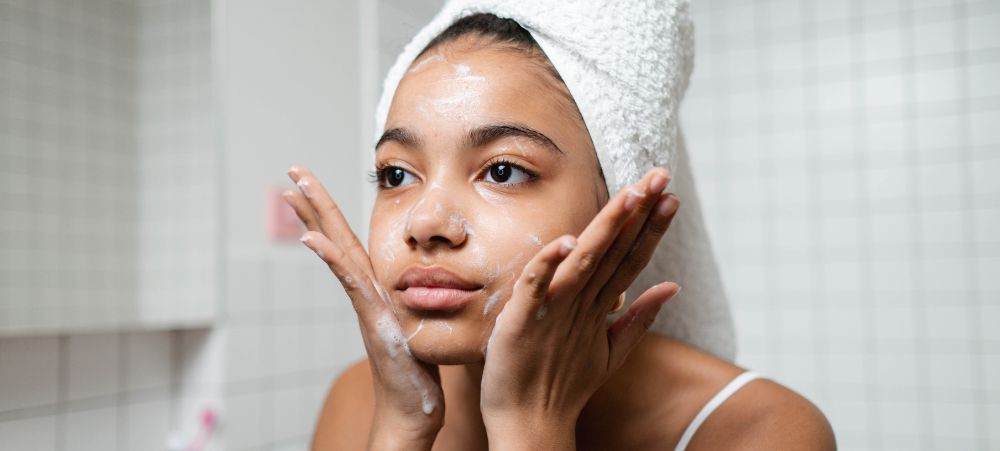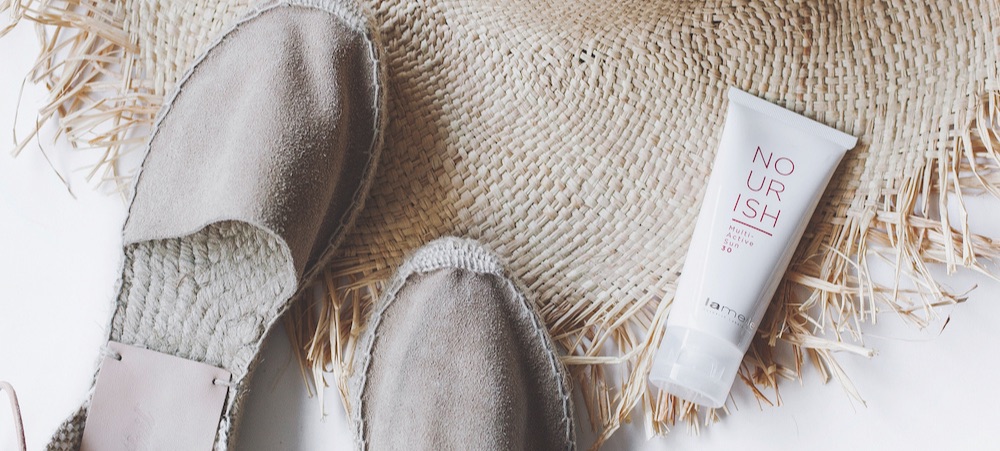Tik Tok has become a major platform for beauty tips, tricks, advice and tutorials. From creating the perfect curl to mastering a cut crease, beauty Tik Tok offers an overwhelming amount of information, but like most social platforms, it’s not all good.
While it’s the perfect platform for makeup artists and beauty experts to share their knowledge, it also allows those who are not educated on the topic, to share their ideas, and potentially create a viral video that can cause more harm than good.
We asked Karen Bester, Medical Trainer at Lamelle Research Laboratories, to separate fact from fiction. She investigated some of the top Tik Tok skincare trends of 2022, and this is her professional take on them:
Slugging
Slugging originated from K-Beauty (Korean Beauty), and involves one simple act: Coating your skin with an occlusive like petroleum jelly before going to bed. The concept is that the occlusive will act as a barrier and seal in moisture, resulting in soft and moisturised skin the next morning.
Karen says:
“Here I believe that balance is very important. We know that occluding the skin will trap water which will in turn help the enzymes in the skin to exfoliate any dry cells that need removing. If we, however, trap too much water this can lead to maceration which is never a good thing. So slug along when your skin is feeling dry in general or after having a treatment, when your skin needs to heal. Occlusion is not required every night though; your skin should have the ability to trap enough water if the lipid bi-layer is intact. ALSO – long-term use of occlusive products can be comedogenic – i.e. cause breakouts.”
Moisture sandwich
Another Korean technique, a ‘moisture sandwich’ refers to the act of applying products to damp skin (as opposed to dry skin), because it is suggested that the ingredients will trap the moisture from the water and thus better hydrate the skin. The first product is usually a humectant (a water-absorbing product) and this is followed by an occlusive (to seal in the moisture).
Karen says:
“It is true and well-researched that applying your products to your skin when your skin is still moist after cleansing does help your skin to trap higher concentrations of water and keep it better hydrated. Applying a humectant (hyaluronic acid is my favourite) first will also help to draw the water in and will trap the water in the skin. A good moisturiser, applied over the hyaluronic acid-containing serum, will mimic the skin’s biology and oils and will keep this moisture trapped. It will also allow the skin to ‘breathe’. Occluding the skin is not required and has its own challenges as discussed under Slugging.”
Pore vacuums
A pore vacuum is a device that uses suction to remove oil and dirt from the pores in an attempt to deep clean the skin. These devices are readily available online, sometimes for as little as R120.
Karen says:
“I wish that these did work – we could then just go for relaxing facials and not need to have deep cleanse facials with extractions. Unfortunately, these tools can be quite damaging and cause painful bruising without extracting the comedos. Especially when the skin is not prepared well or with larger, more stubborn congested areas. You would need to cleanse and moisturise the skin, maybe use an enzymatic exfoliator just to loosen the congested areas.”
Skin cycling
The skin cycling trend was originally posted on Tik Tok by a dermatologist. It involves a four-day skincare cycle, during which active ingredients are applied to the skin for two days (usually a chemical exfoliant on day one and a retinoid on day two), and then the skin is given two days to “rest” (only moisturisers are applied – no active ingredients), before starting the cycle again. The cycle is thought to be good for sensitive skins that can’t use active ingredients every day.
Karen says:
“We love this trend. Even though it was made Tik Tok famous around a year ago, this has been how medical practitioners have always included more aggressive ingredients that have a side effect profile, into skin routines. This removes the need to add lots of ingredients over each other, it lowers the risk for irritation when using products that contain high concentrations of ingredients and it gives us the ability to also combine ingredients used on the skin and look at stimulating the skin in different ways.”
Face taping
As strange as it sounds, face taping involves applying tape to areas of the face where wrinkles might form, in an attempt to “straighten” the skin and give it a more youthful appearance for longer.
Karen says:
“I have not personally tried face-taping but I think it is a fabulous cosmetic tool to have droopy skin look younger – Joan Collins cannot be wrong! Unless you are ripping off the top layer of the skin – the corneum. That is not a good thing and can cause semi-permanent damage to the skin. Of you are using tapes, maybe use an oil to remove the glue so you do not hurt your skin when removing them.”
Salt water cleanse
Based on the concept that skin looks glowy when you emerge from a swim in the ocean, the salt water facial cleansing trend took off on Tik Tok earlier this year. Users used salt water to cleanse their skin twice a day, before applying their skincare products, and recommended the practice to enhance the skin’s radiance, as well as to treat and prevent breakouts.
Karen says:
“There is very little data on the use of salt water in skincare. In ancient (pre-2000) medicine we used salt water to rinse wounds and mouths to lower bacterial load and assist in healing. I do not believe that salt water cleansing will have any negative effects on the skin. The only challenge might be if the salt content in the water is extremely high. In this case, the salt can draw water out of the skin and have a drying rather than a hydrating effect on the skin. With regards to toxins and oils being drawn out of the skin, it does not make sense at all. In fact, if you are using so much salt you will probably find that it dehydrates your skin. This is never a good thing.”
While social media has the ability to educate, it also has the ability to spread false and dangerous information. The next time you see a new skincare trend going viral, consult your therapist before trying it at home.
For more trusted skincare advice, visit www.lamelle.co.za

We understand that there are many aspects that encompass a Mother, Father or Child and strive toward providing resources and services that accommodates this.
Our content is aimed to inform and educate families on issues starting from pregnancy through to the challenges of the teen-age years.
- Say Hello to the Ultimate Holiday Brunch Bite - December 17, 2025
- Tiny Toons Looniversity Returns: Meet the Voice Behind Plucky and Hamton! - December 12, 2025
- From Pain to Possibility: Panado®’s New Marketing Campaign, Highlights The Joy Of Pain Relief - December 10, 2025





